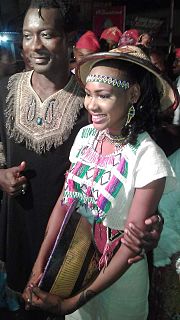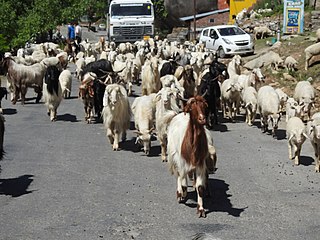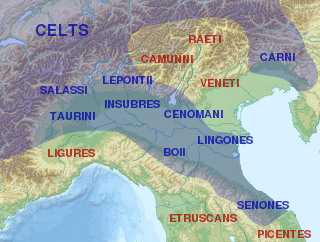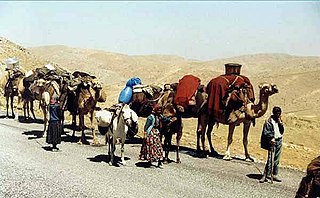 W
WThe Celtiberians were a group of Celts and Celticized peoples inhabiting the central-eastern Iberian Peninsula during the final centuries BC. They were explicitly mentioned as being Celts by several classic authors. These tribes spoke the Celtiberian language and wrote it by adapting the Iberian alphabet. The numerous inscriptions that have been discovered, some of them extensive, have allowed scholars to classify the Celtiberian language as a Celtic language, one of the Hispano-Celtic languages that were spoken in pre-Roman and early Roman Iberia. Archaeologically, many elements link Celtiberians with Celts in Central Europe, but also show large differences with both the Hallstatt culture and La Tène culture.
 W
WFulani herdsmen or Fulani pastoralists are nomadic or semi-nomadic Fulani people whose primary occupation is raising livestock. The Fulani herdsmen are largely located in the Sahel and semi-arid parts of West Africa, but due to relatively recent changes in climate patterns, many herdsmen have moved further south into the savannah and tropical forest belt of West Africa. The herdsmen are found in countries such as Nigeria, Niger, Senegal, Guinea, Mauritania, Mali, Burkina Faso, Ghana, Benin, Côte d'Ivoire, and Cameroon. In Senegal, they inhabit northeastern Ferlo and the southeastern part of the country. In many of these countries the Fula often constitute a minority group,
 W
WThe Gaddis are a tribe living mainly in the Indian states of Himachal Pradesh and Jammu and Kashmir.
 W
WThe Ligures were an ancient population that gave the name to Liguria, a region of north-western Italy.
 W
WThe Sarakatsani are an ethnic Greek population subgroup who were traditionally transhumant shepherds, native to Greece, with a smaller presence in neighbouring Bulgaria, southern Albania, and North Macedonia. Historically centred on the Pindus mountains and other mountain ranges in continental Greece, most Sarakatsani have abandoned the transhumant way of life and have been urbanised.
 W
WVlachs, also Wallachians, is a historical term from the Middle Ages that designates an exonym mostly for Romance-speaking peoples who lived north and south of the Danube.
 W
WThe Yörüks, also Yuruks or Yorouks, are a Turkish ethnic subgroup of Oghuz descent, some of whom are nomadic, primarily inhabiting the mountains of Anatolia, and partly in the Balkan peninsula. On the Balkans Yörüks are distributed over a wide area from southern Serbia, parts of Bulgaria, north to Larissa in Thessaly and southern Thrace. Their name derives from the Turkish verb yürü-, which means "to walk", with the word yörük or yürük designating "those who walk on the hindlegs, walkers". Yörüks lived within the Yörük Sanjak which was not a territorial unit like other sanjaks but a separate organisational unit of the Ottoman Empire.